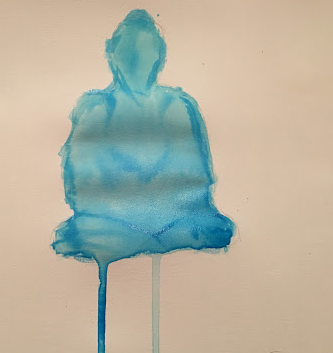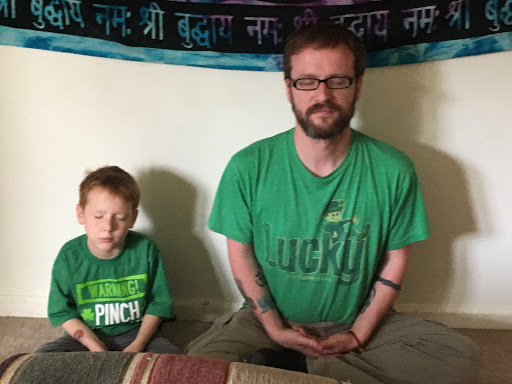
Prajna is translated in several different ways. Sometimes it's knowledge. Sometimes it's wisdom. Sometimes it's transcendental wisdom. Sometimes it's insight. It's the sixth perfection, one of the tools cultivated on the Bodhisattva path.
I prefer to leave it as prajna. Like Dharma and Buddha, I think it's a word that defies our efforts to translate it. It's bigger and more powerful than any labels we might seek to put on it or any boxes we might put it in.
Prajna is the power of the Bodhisattva. It's how we see things as they are. It's our ability to see beyond delusion, to see reality as it truly is. Prajna is something that's present in all of us and can be cultivated through diligent practice.
Prajna if often depicted as a bad ass flaming sword for a few reasons.
1. It cuts through ignorance and delusion, no matter how strong or deep they are.
2. It's dangerous.
Why would prajna be dangerous?
Prajna is dangerous to all the things we cling to. It lets us know that our identities that we've created are only convenient fictions. The mind that says “I-Me-Mine” doesn't serve us very well. When we cultivate prajna we can't hang on to anything and that can be terrifying. Our world, our whole sense of identity, is built around delusions. Prajna will not let us abide in delusion.
The flaming sword that cuts through ignorance cuts both ways. It's not for the timid. One has to have a special fearlessness to cultivate it. This is why people on the Bodhisattva path are called spiritual warriors. Prajna doesn't let us hold on to delusions, even the ones we like. Everything must go. Good, bad, indifferent...it doesn't matter. With the light of prajna we can't keep on telling ourselves lies. We lie to ourselves about who we are, what our motivations are, what we want, and any number of other things. We lie to ourselves with alarming regularity. When we cultivate prajna we have to put a stop to that nonsense.
Prajna includes compassion too, but it's a kind of hard compassion. It's not the kind of compassion that's designed to make us feel better. It the kind of compassion that cuts through what needs to be cut through and exposes us to the world. It's the kind of compassion that compels us to give a friend bad news instead of avoiding it. Hard compassion.
Prajna compels us to question everything we believe in. It compels us to let go of who we thought we were, to lay down all of our baggage and stand exposed, ready to face reality as it is.
In order to cultivate prajna, we have to be willing to have that kind of bravery, to question everything and hold on to nothing. The prajnaparamita sutras teach how to lay down everything and see things as they truly are. They expose us to the reality of emptiness. The practice of formless meditation opens our hearts and minds and prepares us to cultivate prajna.
But we have to be fearless.

